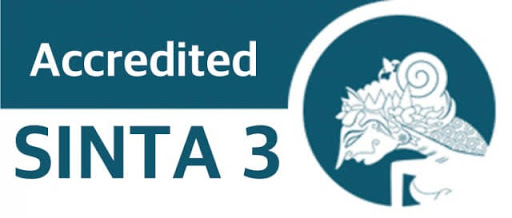The implementation evaluation of school-industry cooperation to strengthen the vocational school students' competence
DOI:
https://doi.org/10.12928/ijei.v1i1.2087Keywords:
CIPP, evaluation, school-industry cooperation, vocational schoolAbstract
This research aims to conduct an evaluation of the implementation of school-industry cooperation in form of internship program. The evaluation focused on the aspects of (1) context, in terms of the purpose of the agreement, (2) input, in terms of readiness of cooperation, (3) process, in terms of the quality of implementing cooperation, and (4) product, in terms of benefits gained from school partner industry cooperation to strengthen the vocational students' competencies. This research is an evaluation research viewed from the Context, Input, Process, and Product (CIPP) components. The research data were obtained from a questionnaire given to students, supervisors, internship working group teams, and school industry partners of the Electric Power Installation Engineering Department of SMK Negeri 1 Windusari. The results are, (1) the context variable got a positive result, (2) the input variable got a negative result, (3) the process variable got a negative result, and (4) the product variable got a negative result. Therefore, the CIPP evaluation found positive, negative, negative, negative (+ - - -) which made the CIPP variable is included in quadrant III of the Glickman quadrant. Thus, we found that implementation of school-industry cooperation to strengthen the students' competence was less effective. The school could use these findings to improve the performance of the cooperation implementation.
References
Arif, U. N., & Suyanto, W. (2014). Evaluasi pelaksanaan praktik kerja industri peserta didik program keahlian teknik otomotif SMK Giripuro Sumpiuh. Jurnal Pendidikan Vokasi, 4(2), 262. doi: 10.21831/jpv.v4i2.2551.
Edi, S., Suharno, & Widiastuti, I. (2017). Pengembangan standar pelaksanaan praktik kerja industri (Prakerin) siswa SMK program keahlian teknik pemesinan di wilayah Surakarta. Jurnal ilmiah Pendidikan Teknik Kejuruan, 10(1), 22-30. doi: 10.20961/jiptek.v10i1.14972.
Jusmin, E. (2012). Pengaruh latar belakang keluarga, kegiatan praktik, dan pelaksanaan pembelajaran kewirausahaan terhadap kesiapan berwirausaha siswa. Jurnal Kependidikan Penelitian Inovasi Pembelajaran, 42(2), 144-151.
Khurniawan, A. W. (2017). SMK Bisa-Hebat Siap Kerja - Santun - Mandiri - Kreatif Inpres Revitalisasi SMK Sebagai Perekat Stakeholder. Jakarta: Direktorat Pembinaan Sekolah Menengah Kejuruan.
Kurniadin, D., & Machali, I. (2016). Manajemen Pendidikan (Konsep dan Prinsip Pengelolaan Pendidikan). Yogyakarta: Ar-Ruzz Media.
Mahmudi, I. (2011). CIPP: Suatu model evaluasi program pendidikan. Journal of Pesantren Education At-Ta'dib, 6(1), 111-125. doi: 10.21111/at-tadib.v6i1.551.
Malik, M. N., & Hasanah, H. (2015). evaluasi praktik kerja industri Sekolah Menengah Kejuruan. Indonesian Journal of Educational Studies, 18(2), 82-91.
MOEC. (2018). Kebijakan Revitalisasi SMK dalam Mewujudkan Good Governance. Jakarta: Direktorat Jenderal Pendidikan Dasar dan Menengah, Kementerian Pendidikan dan Kebudayaan RI.
MOEC. (1998). Keputusan Menteri Pendidikan dan Kebudayaan Republik Indonesia Nomor 323/U/1997 tentang Penyelenggaraan Pendidikan Sistem Ganda pada Sekolah Menengah Kejuruan. Jakarta: Direktorat Pendidikan Menengah Kejuruan, Kementerian Pendidikan dan Kebudayaan RI.
Muryadi, A. D. (2017). Model evaluasi program dalam penelitian evaluasi. Jurnal Ilmiah Penjas, 3(1), 1.
Owen, J. M., & Rogers, P. (1999). Program evaluation: Forms and approaches. Sage Publishing.
Prabandari, E. T., & Rasyid, A. A. (2015). Pengaruh pembelajaran kewirausahaan melalui business center, prakerin, dan latar belakang keluarga terhadap kompetensi berwirausaha. Jurnal Pendidikan Vokasi, 5(1), 1-14. doi: 10.21831/jpv.v5i1.6054.
Santosa, B., & Sulisworo, D. (2018). Work-based assessment at vocational high school in Indonesia. International Journal of Research Studies in Education, 8(1), 89-97. doi: 10.5861/ijrse.2018.3011.
Setneg. (2003). Undang-Undang Republik Indonesia Nomor 20 Tahun 2003 Tentang Sistem Pendidikan Nasional. Jakarta: State Secretariat of the Republic of Indonesia.
Slameto. (2010). Belajar dan Faktor-Faktor yang Mempengaruhinya. Jakarta: Rineka Cipta.
Stufflebeam. (1971). The Relevance of the CIPP Evaluation Model for Educational Accountability. Columbus: Ohio State University.
Sukmadinata, N. S. (2017). Metode Penelitian Pendidikan. Bandung: Remaja Rosdakarya.
Syari, I. A., Imron, A., & Arifin, I. (2018). Manajemen hubungan sekolah dengan dunia usaha dan industri dalam meningkatkan prestasi belajar peserta didik Sekolah Menengah Kejuruan. Jurnal Administrasi dan Manajemen Pendidikan, 1(3), 313-319.
Tri, B. (2012). Model penyelenggaraan work based learning pada pendidikan vokasi Diploma III otomotif. Jurnal Pendidikan Vokasi, 2(1), 11-26.
Tripathi, R., & Chaurasia, K. K. (2012). Analysis and evaluation of training method. 4D International.
Downloads
Published
How to Cite
Issue
Section
License
Copyright (c) 2020 Azizah Nurul Husnaini, Budi Santosa, Tri Kuat

This work is licensed under a Creative Commons Attribution-ShareAlike 4.0 International License.
Authors who publish with this journal agree to the following terms:
- Authors retain copyright with the work simultaneously licensed under a Creative Commons Attribution License that allows others to share the work with an acknowledgement of the work's authorship and initial publication in this journal.
- Authors are able to enter into separate, additional contractual arrangements for the non-exclusive distribution of the journal's published version of the work (e.g., post it to an institutional repository or publish it in a book), with an acknowledgement of its initial publication in this journal.
- Authors are permitted and encouraged to post their work online (e.g., in institutional repositories or on their website) prior to and during the submission process, as it can lead to productive exchanges, as well as earlier and greater citation of published work (See The Effect of Open Access).




